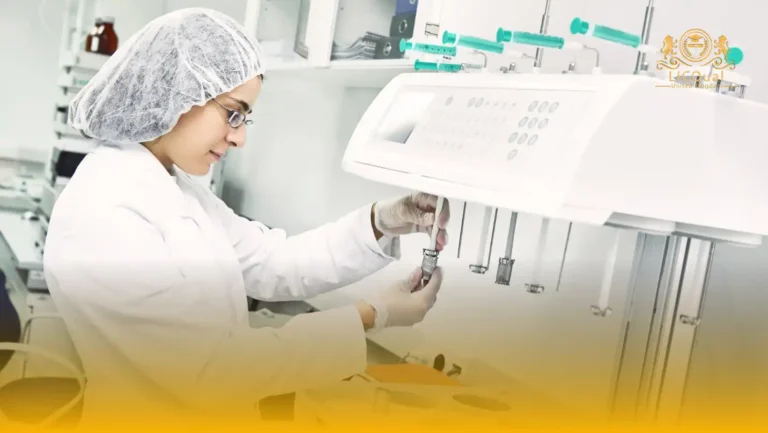The LICQual Level 6 Diploma in Family Medicine (Dip FM) is a specialised and advanced qualification designed for healthcare professionals who wish to strengthen their expertise in comprehensive patient care and primary healthcare management. This diploma is not intended for fresh candidates; it is tailored for experienced practitioners who aim to enhance their clinical skills, broaden their medical knowledge, and advance their Continuing Professional Development (CPD).
Family medicine plays a crucial role in healthcare systems worldwide, focusing on holistic, patient-centred care across all age groups. This diploma equips learners with the ability to manage a wide range of health conditions, from acute and chronic illnesses to preventive care, health promotion, and community health management. Learners will also develop advanced decision-making, diagnostic, and treatment planning skills essential for primary care and multidisciplinary practice.
Centres delivering this qualification must ensure they have competent and qualified staff with professional expertise in family medicine and primary healthcare. In addition, they must provide learners with access to modern learning facilities, evidence-based study materials, and clinical resources to guarantee effective training. High-quality delivery, strong learner support services, and updated teaching resources are critical for ensuring successful learner outcomes.
By completing the LICQual Level 6 Diploma in Family Medicine, learners will not only achieve advanced professional recognition but also gain the skills required to excel in leadership roles, contribute to healthcare policy, and deliver safe, effective, and compassionate care to individuals, families, and communities. This qualification is an excellent opportunity for healthcare professionals dedicated to advancing their careers while making a meaningful impact on public health and primary care delivery.
Course Overview
Qualification Title
LICQual Level 6 Diploma in Family Medicine (Dip FM)
Total Units
6
Total Credits
120
GLH
480
Qualification #
LICQ2200921
Qualification Specification
To enroll in the LICQual Level 6 Diploma in Family Medicine (Dip FM), applicants must meet the following criteria:
|
Qualification# |
Unit Title |
Credits |
GLH |
|---|---|---|---|
|
LICQ2200921-1 |
Foundations and Principles of Family Medicine |
20 |
80 |
|
LICQ2200921-2 |
Clinical Management of Acute and Chronic Conditions |
20 |
80 |
|
LICQ2200921-3 |
Preventive Medicine, Health Promotion, and Community Care |
20 |
80 |
|
LICQ2200921-4 |
Paediatric, Geriatric, and Women’s Health in Family Medicine |
20 |
80 |
|
LICQ2200921-5 |
Leadership, Ethics, and Multidisciplinary Practice in Primary Care |
20 |
80 |
|
LICQ2200921-6 |
Research, Evidence-Based Practice, and CPD in Family Medicine |
20 |
80 |
By the end of this course, learners will be able to:
Unit 1: Foundations and Principles of Family Medicine
- Understand the scope, philosophy, and core principles of family medicine.
- Analyse the role of family physicians in holistic, patient-centred care.
- Apply evidence-based approaches to diagnosis and treatment in primary care.
- Evaluate the importance of continuity of care and doctor–patient relationships.
- Demonstrate awareness of global health systems and their impact on family medicine practice.
Unit 2: Clinical Management of Acute and Chronic Conditions
- Diagnose and manage common acute conditions in primary care settings.
- Develop management plans for chronic diseases such as diabetes, hypertension, and respiratory illnesses.
- Apply clinical reasoning skills in the management of complex multi-morbidities.
- Evaluate the role of family physicians in early intervention and long-term care.
- Demonstrate skills in prescribing, patient monitoring, and follow-up care.
Unit 3: Preventive Medicine, Health Promotion, and Community Care
- Understand the principles of preventive medicine and population health.
- Design health promotion strategies for individuals, families, and communities.
- Assess the impact of social, cultural, and environmental determinants on health.
- Implement screening programmes for early detection of diseases.
- Evaluate community-based interventions and their effectiveness in improving health outcomes.
Unit 4: Paediatric, Geriatric, and Women’s Health in Family Medicine
- Recognise key health issues affecting children, women, and older adults.
- Manage paediatric conditions commonly encountered in primary care.
- Provide comprehensive care for women’s health, including reproductive and maternal care.
- Address the unique healthcare needs of elderly patients, including chronic illness and frailty.
- Apply patient-centred approaches in delivering sensitive and age-appropriate care.
Unit 5: Leadership, Ethics, and Multidisciplinary Practice in Primary Care
- Demonstrate leadership skills within primary care and multidisciplinary teams.
- Apply ethical principles to decision-making in family medicine.
- Understand the legal responsibilities of healthcare professionals in community practice.
- Evaluate strategies for effective teamwork and inter-professional collaboration.
- Promote patient safety and quality improvement initiatives in primary healthcare.
Unit 6: Research, Evidence-Based Practice, and CPD in Family Medicine
- Understand the role of research in advancing family medicine.
- Critically evaluate medical literature and apply evidence to clinical practice.
- Design and conduct small-scale research projects relevant to primary care.
- Demonstrate commitment to lifelong learning and Continuing Professional Development (CPD).
- Integrate reflective practice into professional growth and service improvement.
The LICQual Level 6 Diploma in Family Medicine (Dip FM) is designed for healthcare professionals who want to advance their expertise in primary care, family medicine, and patient-centered healthcare. Whether you are a doctor, medical graduate, or healthcare worker aiming for international accreditation, this Family Medicine Diploma UK provides the skills, recognition, and flexibility to boost your career.
1. General Practitioners (GPs)
- Enhance clinical decision-making in family medicine.
- Gain internationally accredited qualifications for career growth.
- Improve patient-centered care across all age groups.
- Strengthen preventive medicine and chronic disease management skills.
- Stay updated with modern healthcare practices.
2. Medical Graduates Seeking Specialization
- Build a strong foundation in family medicine after graduation.
- Earn a Level 6 Family Medicine Diploma online for flexibility.
- Gain CPD accredited certification recognized worldwide.
- Improve employability in hospitals and clinics.
- Prepare for advanced roles in primary healthcare.
3. International Medical Professionals
- Obtain a UK-accredited Family Medicine diploma.
- Meet global standards in patient care and healthcare delivery.
- Access affordable and flexible online study options.
- Strengthen credentials for international career opportunities.
- Improve eligibility for healthcare positions abroad.
4. Hospital and Clinic Doctors
- Expand expertise in managing diverse patient cases.
- Learn evidence-based approaches to family medicine.
- Improve chronic disease management strategies.
- Gain recognition with CPD accredited qualifications.
- Enhance leadership roles in healthcare teams.
5. Community Healthcare Workers
- Develop skills in preventive and holistic healthcare.
- Learn strategies for family health and wellness.
- Strengthen knowledge in primary care delivery.
- Earn internationally recognized certification.
- Improve career prospects in community health programs.
6. Healthcare Educators and Trainers
- Gain advanced knowledge to teach family medicine.
- Use internationally accredited curriculum for training.
- Improve credibility with CPD recognition.
- Stay updated with evolving healthcare standards.
- Enhance teaching effectiveness in medical education.
7. Professionals Seeking Career Advancement
- Boost career prospects with a recognized diploma.
- Gain specialized skills in family medicine practice.
- Access flexible online learning for busy professionals.
- Strengthen qualifications for promotions and leadership roles.
- Position yourself for global healthcare opportunities.
Centres delivering the LICQual Level 6 Diploma in Family Medicine (Dip FM) must ensure they meet high-quality training and assessment standards to support learner success. To provide this qualification effectively, centres are required to have:
- Qualified and Experienced Faculty – Trainers and assessors must hold recognised medical qualifications in family medicine or related fields, with proven clinical and teaching experience.
- Access to Clinical Resources – Centres must provide up-to-date reference materials, medical journals, case studies, and evidence-based resources to enhance learner knowledge.
- Well-Equipped Learning Environment – Classrooms, clinical labs, and online platforms should be suitable for interactive learning, simulations, and discussions.
- Robust Assessment and Quality Assurance – Centres must implement fair, transparent, and standardised assessment methods, with internal quality assurance systems in place.
- Commitment to CPD (Continuing Professional Development) – Trainers should engage in CPD to ensure learners receive the latest and most relevant medical knowledge.
- Technological Support – Centres should have reliable IT infrastructure for e-learning, research, and digital resource access.
- Learner Support Services – Guidance, academic support, and mentoring must be provided to help learners progress effectively through the qualification.
- Compliance with International Standards – Centres must align with professional, ethical, and educational frameworks to deliver a globally recognised qualification.
By meeting these centre requirements, training providers will ensure that learners receive the highest quality education in family medicine, enabling them to excel in clinical practice, leadership, and community healthcare.
Assessment and Verification
All units within this qualification are subject to internal assessment by the approved centre and external verification by LICQual. The qualification follows a criterion-referenced assessment approach, ensuring that learners meet all specified learning outcomes.
To achieve a ‘Pass’ in any unit, learners must provide valid, sufficient, and authentic evidence demonstrating their attainment of all learning outcomes and compliance with the prescribed assessment criteria. The Assessor is responsible for evaluating the evidence and determining whether the learner has successfully met the required standards.
Assessors must maintain a clear and comprehensive audit trail, documenting the basis for their assessment decisions to ensure transparency, consistency, and compliance with quality assurance requirements.







